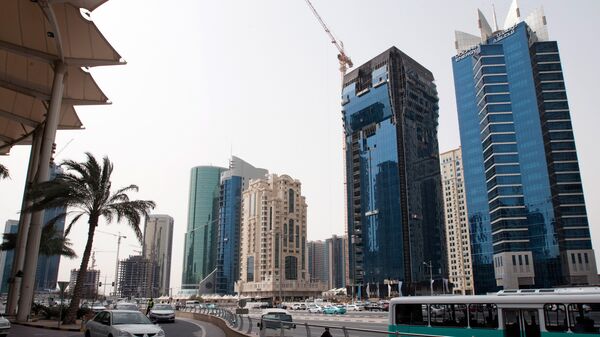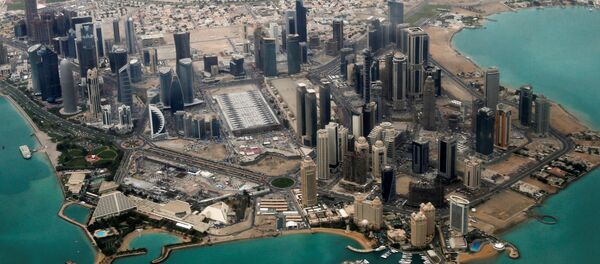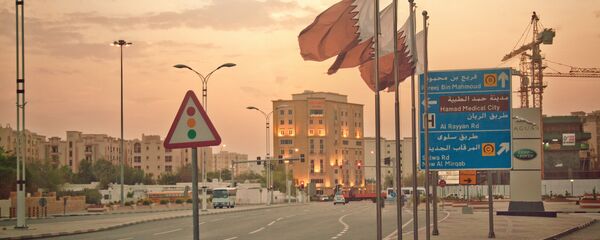DOHA (Sputnik) – Thani commented on possible consequences of the blockade against Qatar.
"No one is in a position to impose regime change on this country, our system here is based on consensus between the people and the ruler. So if they are thinking about such a thing, it is a clear intervention in our internal affairs which is not accepted by the international law."
The blockade imposed on Qatar by other states of the region is an act of aggression, Thani said.
Qatar will not tolerate the creation of any foreign monitoring mechanisms with respect to itself, as it would violate the country’s sovereignty, he added.
"We are not under the guardianship of any country, we are a sovereign, independent state and we do not accept any other position from any country, we are an active part of the international community, we are a country that respects the international law," Thani told reporters.
Qatar is ready to engage in direct talks with the countries that have severed ties with it, but only after the end of the blockade, he said.
"I think that we need to work out and bring more pressure on the countries at least to use the legal way for the blockade, and not to block the international skies of international waters or preventing our ships from reaching Qatar," the official said
The Gulf states that have cut off diplomatic ties with Qatar have violated an agreement about noninterference in internal affairs of other countries signed in 2014, Al Thani said.
"So they are claiming that we are violating the agreement, which took place in 2014. This agreement has a clear arbitration mechanism, which is to discuss any issue bilaterally. If it is not solved bilaterally it goes to the ministerial council for the GCC and if it is not solved there it goes to the summit to be sorted at," the minister said at a press conference in Doha.
The diplomat added that he considered that it was not Qatar that violated the agreement, as restrictions against Doha had been imposed not in accordance with the 2014 deal.
The ongoing diplomatic conflict between Qatar and a number of the Gulf States is not the first conflict between Doha and its neighbors. In 2014, the Gulf Cooperation Council (GCC) member states reached an agreement obliging to refrain from interference in the internal affairs of the parties to the deal.
Nobody has been able to provide any evidence of Qatar’s alleged interference in affairs of other countries, the Qatari foreign minister added.
None of the countries involved in the crisis are members of NATO, however the organization cooperates with them in different capacities. Bahrain, Qatar and the United Arab Emirates joined the Istanbul Cooperation Initiative (ICI), aimed at long-term global and regional security through NATO's practical bilateral security cooperation with Middle East countries. Mauritania, Jordan and Egypt are involved in NATO's Mediterranean Dialogue, established to promote regional security through dialogue and mutual understanding.







